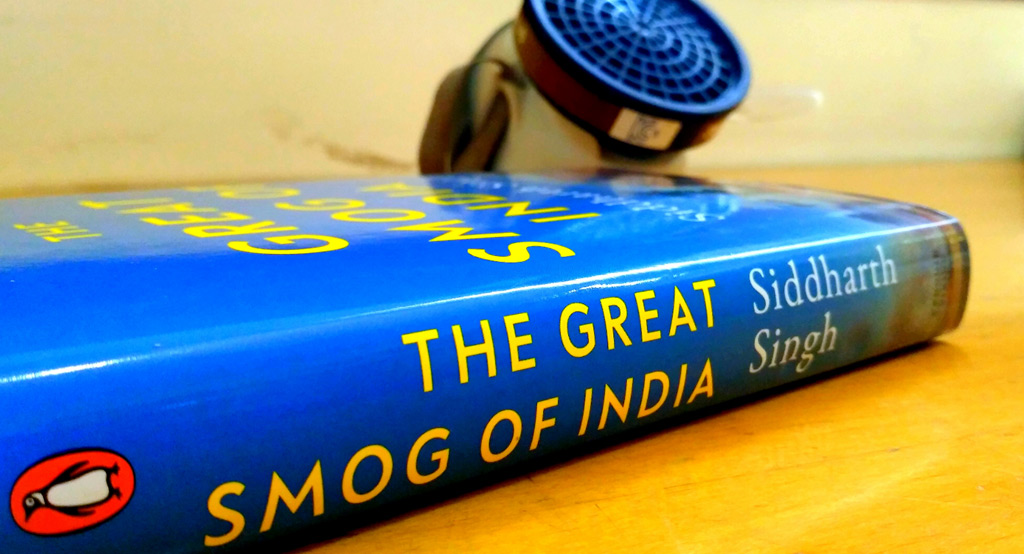December 1, 2018
New Book on Delhi’s Smog Published

New Book on Delhi’s Smog Published
The smog problem in India has been the most infamous environmental nuisance in recent years given to its growing size and resulting adverse effects on human lives every year, and the failure to overcome it by various agencies and the society at large.
This nefarious environmental crisis that has already acquired a considerable amount of space across media platforms now gets discussed in collated volumes by Delhi-based writer and Energy, Mobility and Climate policy expert, Siddhart Singh in his first book ‘The Great Smog of India.’ With a dash of pepper and salt, the author has tried to bring in to the table the ‘Ws and H’ of the smog problem in India, which is more prominent in the northern part, where it has taken the shape of a great and all-pervasive giant in the recent decade.
Across 228 pages, inside nine chapters, Siddhart Singh in a mixed flavour of irony, story-telling and facts, has undressed the different factors that have played distinct roles in smog accumulation. He has tried to underline and demystify the smog issue by scratching on various liable spots, that include transport, industrial and energy sectors, as well as agricultural doings like crop stubble burning – a prominent post-harvest practice by northern Indian farmers, that have been major contributors of air pollution problem in the country.
He also has rightly pinpointed the geographic inconvenience faced by land-locked cities in northern India who is choking under air pollution more than other cities in the country. Singh has also frankly taunted the government and environmental agencies at the inefficiency displayed to handle the situation effectively and more for passing the buck around.
The Great Smog of India is not another research material stating obvious facts in dull and plain greyish tones as its subject, but is a peppery dig at the entirety of the issue while raising alarms giving no false hopes that the days ahead of us will be cleared off and brightened up without a speck of grey dust, on its own. The writer signs off the book with this line, “Indeed it is imperative that the air pollution crisis is addressed…….so that the aspirations of a people looking to rise out of poverty, remain healthy and pursue happiness are not derailed.”


